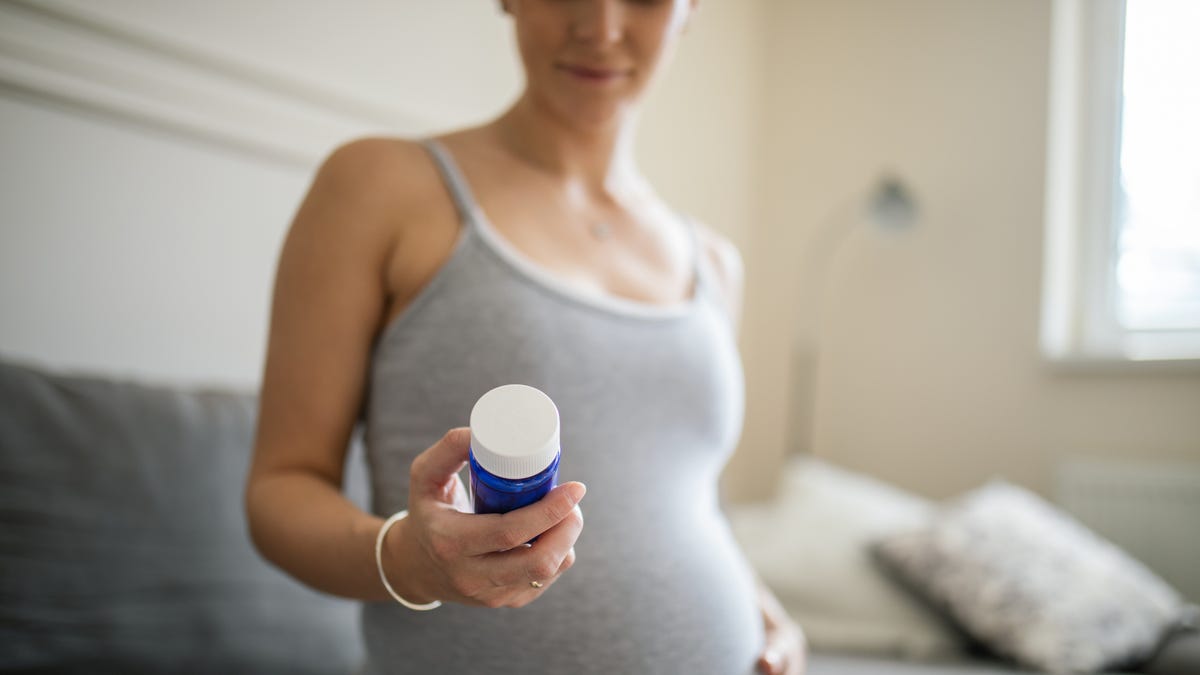Report reveals misrepresentation on labels for prenatal vitamins
A report from the Government Accountability Office finds the nutrient amounts in tested prenatal supplements did not match the amount listed on the label.
Scripps News
There’s no shortage of confusing messaging about how to maintain a healthy pregnancy. Including a barrage of solicited and unsolicited tips, expectant parents may receive conflicting information on everything from what to eat to how to move during those vital months a baby is growing.
Well, it’s about to get more confusing.
A recent government study reported daily prenatal vitamins may not contain the proportion of nutrients published on their labels.
Researchers from the U.S. Government Accountability Office tested 12 prenatal supplements – including gummies, softgels and tablets – for six common nutrients OB-GYNs say are essential for pregnant people: folic acid, iodine, iron and vitamins A, C, and E. The study found 11 of the 12 supplements tested had at least one nutrient above or below the quantities advertised on the labels.
The levels found in these supplements don’t present immediate safety risks, but the difference could be important enough for pregnant people who have been instructed to take certain prenatal vitamins based on nutrition deficiencies.
Dr. Christopher Zahn, interim CEO of the American College of Obstetricians and Gynecologists, or ACOG, said the report’s findings are “concerning” and he understands if patients are “disturbed.”
Widespread health care disparities: Hardships for minority kids start at birth
“While its best to get those nutrients with food… (OB-GYNs) can’t assume that all their patients are getting access to what they need through a balanced diet,” said Zahn, who is also chief of clinical practice and health equity and quality at ACOG. “Supplements can play a critical role in ensuring that people receive the recommended nutrients to support their pregnancies.”
Laboratory scientists also tested for heavy metals, including arsenic, cadmium, lead and mercury. They found trace amounts of lead and cadmium in about half of the supplement samples, however, the levels detected were not high enough to cause concern according to the Food and Drug Administration’s metric levels of safety.
Report authors say the metals may not be from the manufacturing process. Instead, they naturally build up from the environment in the ingredients chosen for the vitamins or minerals they contain.
Slight changes in vitamins and nutrients don’t pose the same level of threat as active ingredients in drugs that are tightly regulated by the FDA, said Andrea Wong, senior vice president of scientific and regulatory affairs at the Council for Responsible Nutrition, a trade association and lobbying group representing dietary supplement industry.
But experts at ACOG and other health organizations are still urging the FDA to regulate supplement standardization and safety.
His baby daughter melts his heart. Scientists say she’s changing his brain, too.
“As supplement manufacturers have demonstrated that they do not guarantee the accuracy of the dosing of supplements, stricter regulations are necessary for public safety,” Dr. Kurt Wharton, OB-GYN and professor at Oakland University William Beaumont School of Medicine.
Despite concerns raised by the report, ACOG and other health experts still recommend pregnant people take a daily prenatal vitamin, particularly one with folic acid, which reduces the risk of birth defects in the brain and spine.
Iron also prevents pregnant people from developing anemia and vitamins A, D, E and K may benefit patients who suffer from chronic intestinal diseases or who have undergone weight loss surgery, Wharton said. But while supplements are important for pregnancy, nothing takes the place of a nutritious diet, several experts said.
Zahn from ACOG recommends patients speak with their health care provider before taking supplements during pregnancy, or if they’re planning a pregnancy.
“It’s critical that patients feel secure knowing that what they are consuming is not harmful to them or their pregnancy,” he said.
Send tips to Adrianna Rodriguez at adrodriguez@.com.
